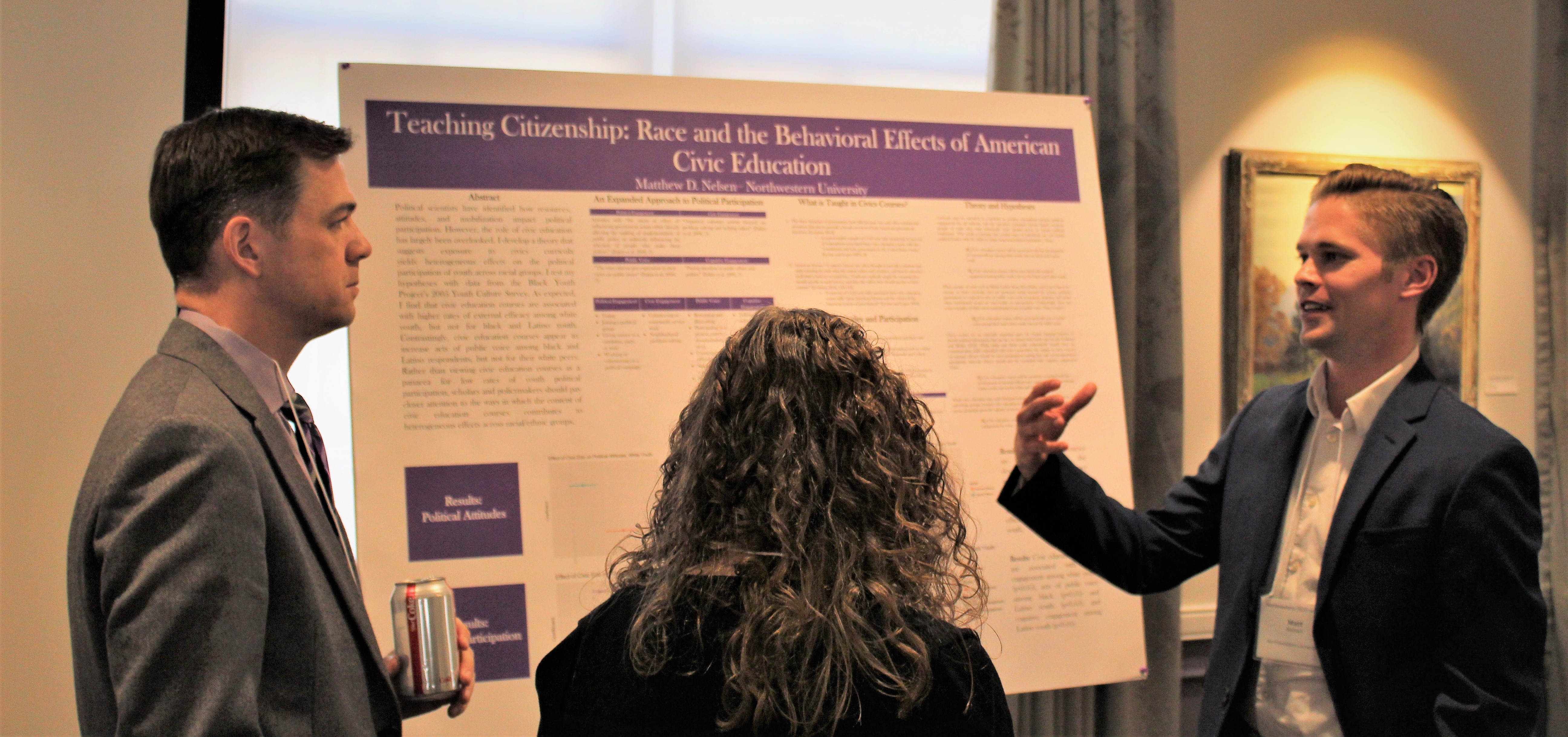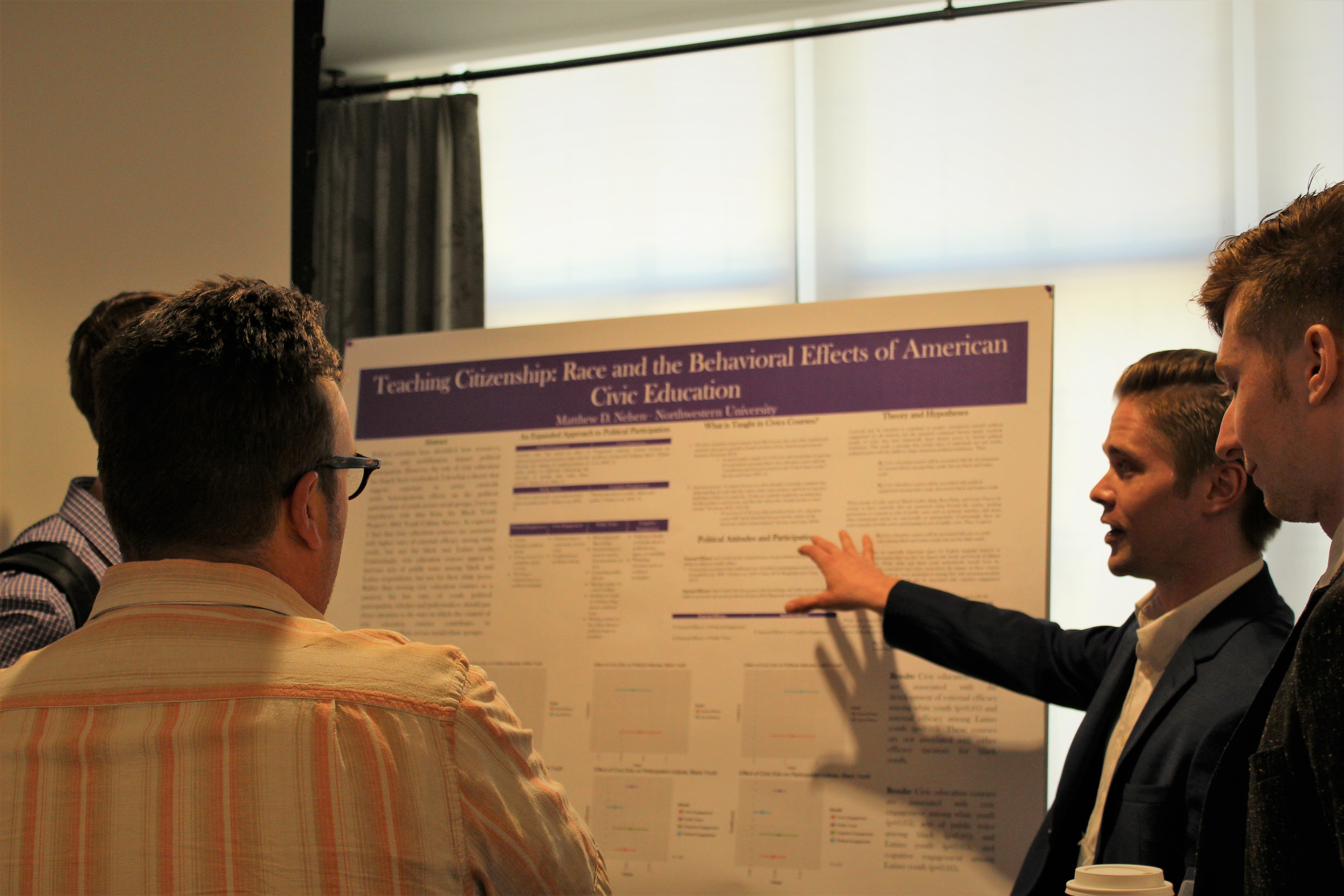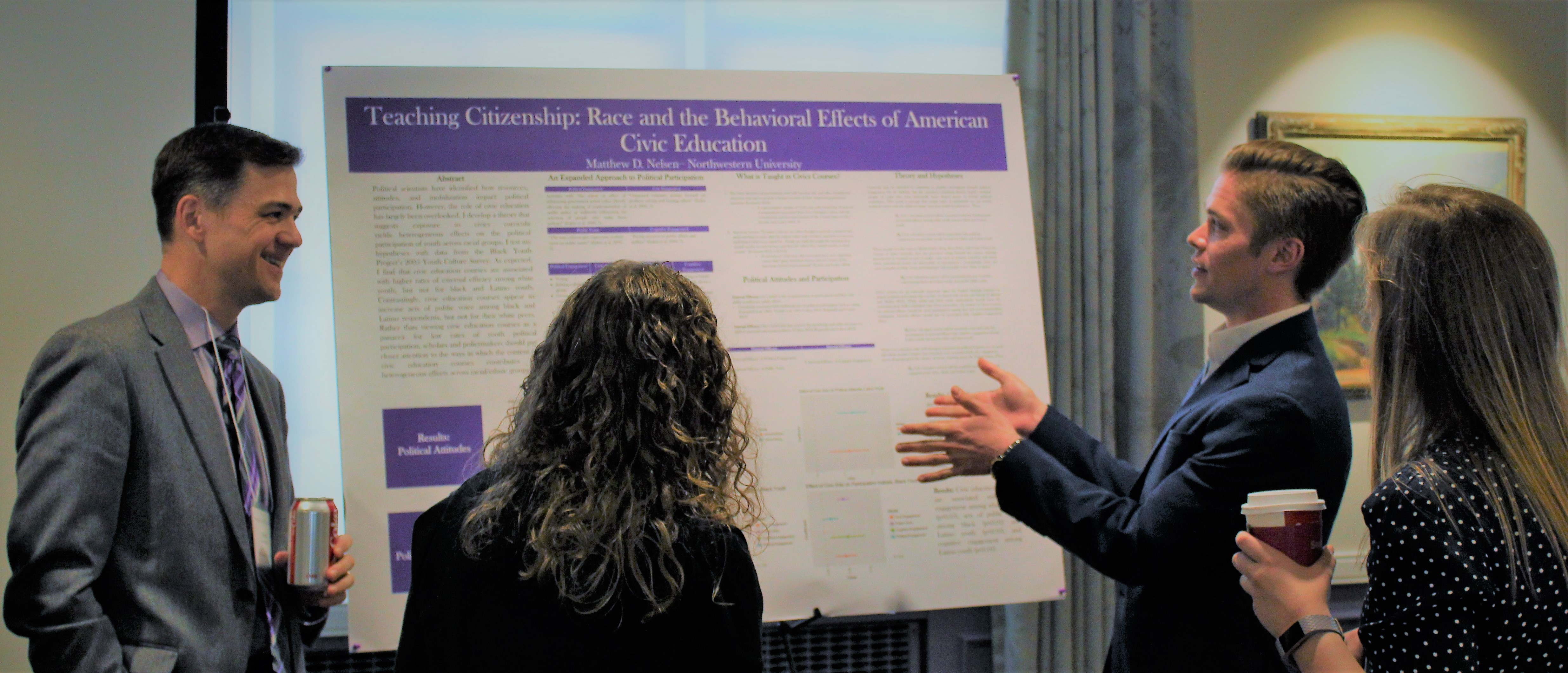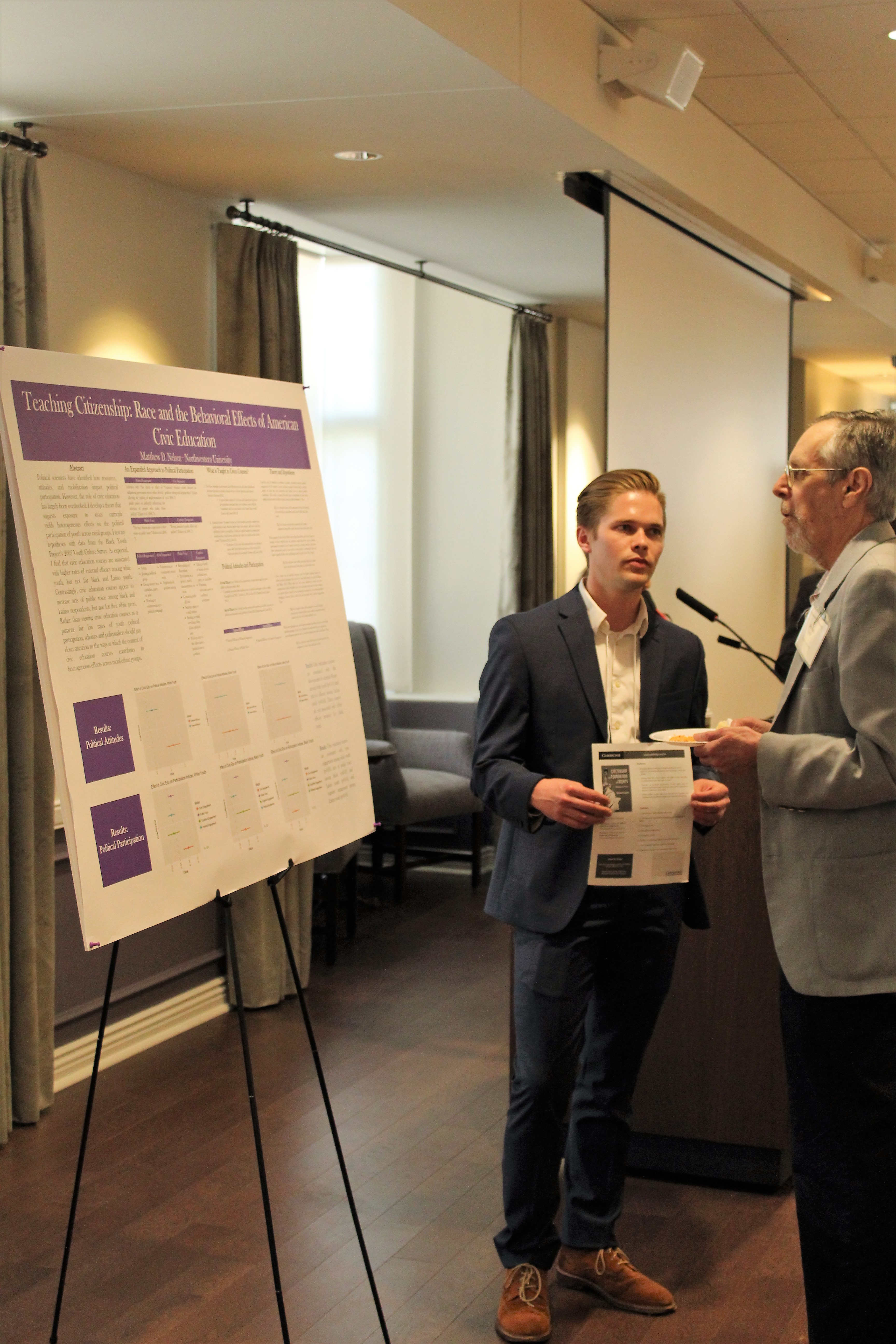
CAB 2018 Graduate Poster Session
Matthew Nelsen
Teaching Citizenship: Race and the Behavioral Effects of American Civic Education
Tell us about yourself: What are your research interests? How did you get into academic research?
As a first generation college student, I did not envision that so much of life would be devoted to higher education. Following undergrad, I became a fifth grade teacher within the San Antonio Independent School District during the height of the 2012 presidential election.
While commentators frequently argued that young Americans had (at best) ambivalent political views, my students were able to discuss the nuances of education and housing policy while expressing doubts regarding the ability of governing institutions to respond to their needs. How could ten and eleven year olds possess such sophisticated political views while simultaneously being labeled "politically disengaged?" As an educator, I began to obsess over these questions and leveraged the research skills I acquired during undergrad to read everything I could about youth political engagement.
After two years in the classroom, I decided to pursue my M.A. at the University of Chicago to explore these questions. I knew by the end of my first quarter at U of C that I wanted to pursue a PhD.
Tell us about your poster: How did you arrive at this research project and what are your findings?
 My research grew out of my experiences as a public school teacher. I wanted my students to have the knowledge and skills to participate in politics, but questioned whether traditional approaches to civic education contributed to favorable outcomes among young people of color. My research suggests that civic education does matter. However, the effects of these courses differ across racial and ethnic groups. I find that civic education courses are associated with higher rates of external efficacy among white youth, but not for black and Latino youth. Contrastingly, civic education courses appear to increase acts of public voice such as protesting among black and Latino respondents, but not for their white peers. Thus, rather than viewing civic education courses as a panacea for low rates of youth political participation, scholars and policymakers should pay closer attention to the ways in which the content of civic education courses contributes to heterogeneous effects across racial/ethnic groups. If we are to live up to the ideal of representative governance, the nature of citizenship education taught in schools must be reconsidered.
My research grew out of my experiences as a public school teacher. I wanted my students to have the knowledge and skills to participate in politics, but questioned whether traditional approaches to civic education contributed to favorable outcomes among young people of color. My research suggests that civic education does matter. However, the effects of these courses differ across racial and ethnic groups. I find that civic education courses are associated with higher rates of external efficacy among white youth, but not for black and Latino youth. Contrastingly, civic education courses appear to increase acts of public voice such as protesting among black and Latino respondents, but not for their white peers. Thus, rather than viewing civic education courses as a panacea for low rates of youth political participation, scholars and policymakers should pay closer attention to the ways in which the content of civic education courses contributes to heterogeneous effects across racial/ethnic groups. If we are to live up to the ideal of representative governance, the nature of citizenship education taught in schools must be reconsidered.
What are your next steps and how will you incorporate this project into your future research?
This research will be folded into my dissertation. While this project demonstrates that civic education courses are associated with distinct attitudes and behaviors across racial and ethnic groups, it can not speak to specific causal mechanisms. Forthcoming chapters of my dissertation will explore the effects of specific curricular interventions (i.e. textbooks and new media literacy) by conducting experiments within Chicago-area high schools.

What was your overall impression of CAB 2018 (the presentations, mentorship & networking sessions, presenting your work, etc.)?
CAB consistently provides the space to receive feedback and mentorship from individuals you discuss in class and cite in papers. This year, I had the opportunity to have a mentor meeting with David Campbell who is one of a handful of individuals within political science interested in civic education and youth engagement. In addition to receiving feedback on my work from Professor Campbell, I was able to connect with an individual who I will undoubtedly be in conversation with for the entirety of my career.
What advice would you give to graduate students who are
thinking about submitting their poster to future CAB sessions?
Take the leap! CAB provides opportunities for young scholars to receive feedback and encouragement from some of the most prominent researchers in the field of political behavior.
